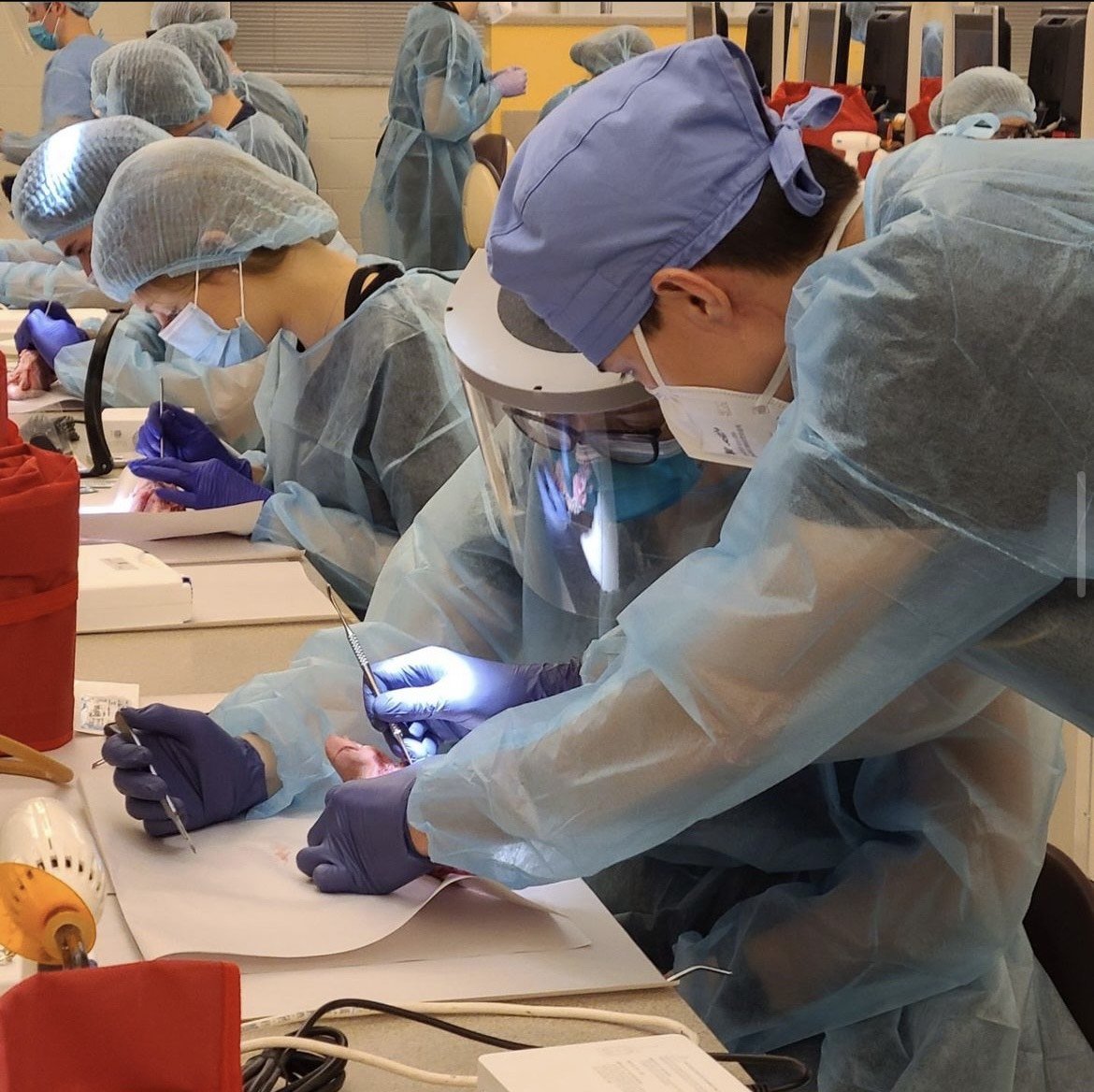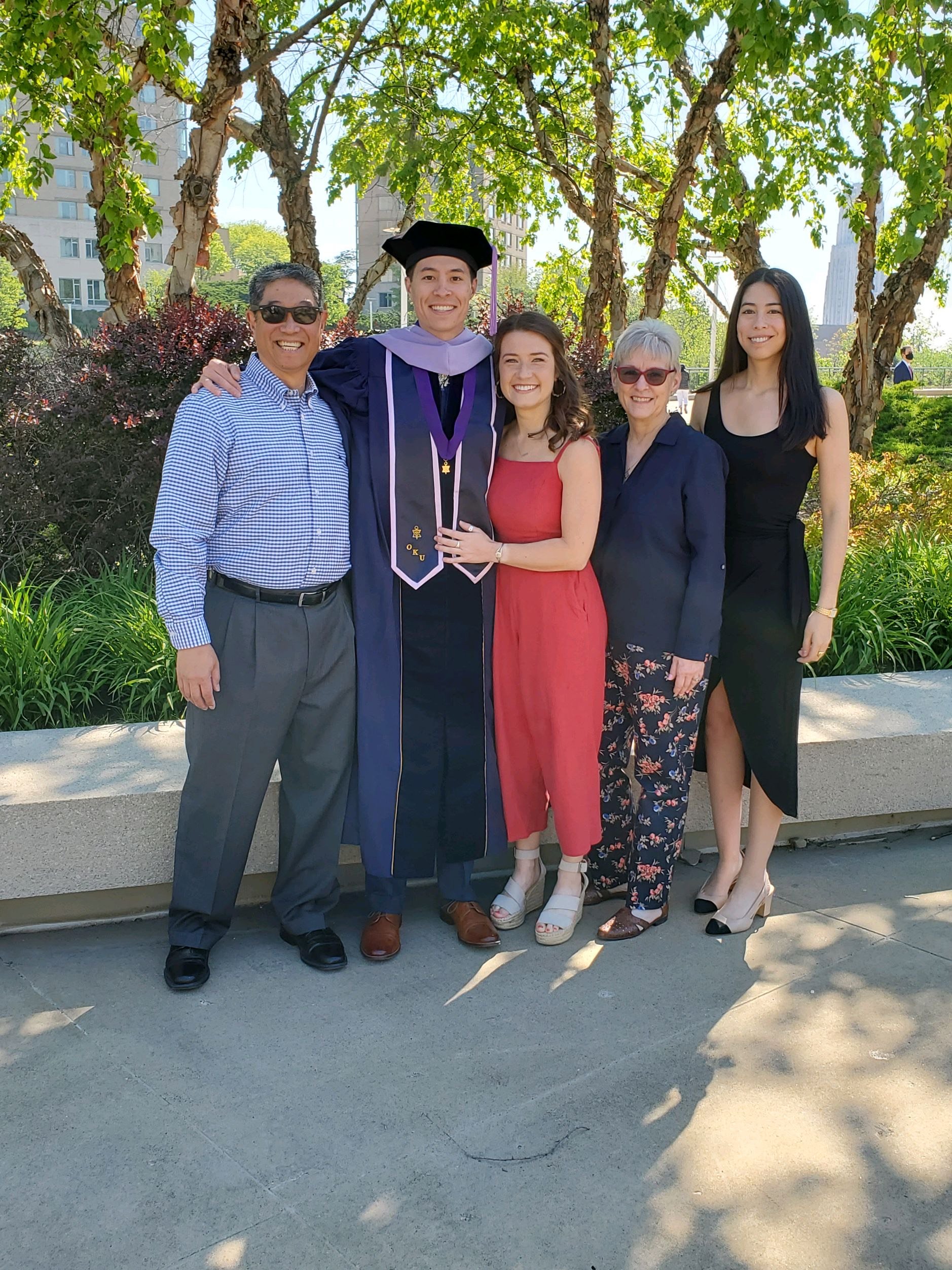COVID and Dental Problems: What’s Changed Post-Pandemic?
Written by Melissa Schenkman, MPH, MSJ
Oral Health and Overall Health
What are your thoughts about the term “oral health”? For some, the mouth is thought of as completely separate with no connection to the rest of the body. But just as so many millennials are into the idea of holistic health, our mouths need to be thought of as just one piece of an interconnected system of our entire body. That’s because our oral health and what happens in the mouth affects what happens in the rest of the body. If you have an infection—tooth decay, gingivitis, or periodontal disease—in your mouth, then your bloodstream can carry that bacteria to other parts of your body.
Poor oral health has been linked to heart disease, pregnancy and birth complications, pneumonia, and even facial swelling. Many reasons why it is important to practice good oral hygiene, which according to the American Dental Association includes:
Brushing your teeth with fluoride toothpaste twice a day for two minutes
Floss daily
Limit sugary beverages and snacks
See your dentist regularly for dental cleaning and checkups
COVID and dentistry
COVID-19 has led to a host of different issues in dentistry resulting from everything from lockdowns to requiring more protective gear to scaring patients away from getting regular checkups, resulting an increase in dental disease.
Periodontist, aka “gum doctor,” Jesse Woon, DMD, has seen the changes firsthand. He shares his experience with us from training during pandemic, how COVID has impacted patients’ oral health, how him and his colleagues handle the ever-changing guidelines, and where things stand today.
YMyHealth: What initially drove you to the field of healthcare, and to choosing dentistry as your path, and now to specializing in periodontics?
Jesse Woon: I had always had a healthcare-related career in mind, mostly because my mom was a nurse growing up, and we would go visit her at the hospital a lot. I was always interested in the math and sciences. So, I thought some career in healthcare would just be a good fit. When I was in college, I was a biology major. I wasn't exactly sure what I wanted to do with that, but was thinking about medicine, and ended up deciding I didn't want to go into medical school, but one of my friends had suggested dentistry, because I like working with my hands. So, I started looking into that field and thought it would be a good fit.
I kind of always thought I would want to specialize because I like to be really good at whatever it is that I'm doing and thought that general dentistry might be too large of a field to feel like I'm an actual expert in everything that is that I'm doing. So, I kind of one by one sort of ruled out other specialties and decided that I was more interested in surgery and just ended up feeling like I aligned a little bit more with the field of periodontics.
Jesse Woon, DMD, is a 29-year old periodontal (aka, “gum doctor”) resident in his second year of his three-year residency at University of North Carolina at Chapel Hill Adams School of Dentistry.
YMyHealth: What are some of the ways that being in Dental School when the pandemic hit impacted your training?
Jesse Woon: The pandemic first hit when I was in my third year of dental school. So, I had already started in clinic, and I was mostly done with my didactic courses. It was definitely concerning when we were first kind of figuring everything out with the pandemic. There was a lot of uncertainty whether we'd be able to finish our requirements and whether it'd be able to graduate on time. But in the end, my school was able to sort of supplement our didactic courses with online seminars that we were able to do while we were away from that physical building. And we took some additional courses to sort of supplement our clinical experience. In the end, I don't think we got quite as much clinical experience as I wished we would have, but that didn't stop us from reaching our requirements, and graduating on time.
We closed in March 2020 of my third year and didn't go back into clinic until sometime in early to mid-July. While there was a lot of fear and uncertainty associated with that, it was, in a way, also a nice reprieve from school itself. It actually gave me a lot more time to do things outside of school that I wanted to do and just sort of enjoy the summer a little bit, which is not something that I would have normally been able to do. So, in that sense. Having the pandemic shutdown was actually sort of a benefit to me. It was sort of a difficult period of school though. I think for me, it came at the best possible time in my dental school education, whereas if it was first year or right at the end of my fourth year, it would have been a lot more challenging to deal with.
YMyHealth: What are some of the notable changes to the practice of dentistry and periodontics that have been made because of the pandemic?
Jesse Woon: So initially, there was a lot of change as a result of the pandemic. There was an insane amount more PPE and caution around everything to do with just hygiene and cleanliness and aerosols. That hadn't been nearly as big of a concern.
Prior to that, things have slowly started to return to sort of how they were before, but I don't think it'll ever be as sort of, I guess lax as things were prior to COVID. For me. I don't think there's a huge change at this point anymore. Besides wearing slightly stronger masks, and having patients wear masks more often in the office. I don't think there's a whole lot of change at this point, but that was certainly not the case when offices first reopened after the pandemic started.
YMyHealth: How has COVID impacted dental appointments and patients’ oral health?
Jesse Woon: In my field specifically, for people that have periodontal disease, we'd like to see them every three months to clean their teeth and just to maintain them, but when offices and practices shut down because of the pandemic, a lot of people weren't able to stick to that every three months schedule and people had a fear of returning to the dentist and kind of being in that clinical setting. So, a lot of people have these longer lapses of care. In my field, we've definitely seen sort of a resurgence or relapse and a lot of patients that had periodontal disease, where things have gotten worse, probably in the past three years at this point.
YMyHealth: How has the Coronavirus Pandemic changed your perspective on your work in this dental field and in healthcare in general?
Jesse Woon: I think for me, the major change in my outlook on healthcare and dentistry, is that I've realized how much more easily politicized current events are, and how that those can influence my day-to-day working environment and my life. I mean, healthcare, whether it's oral health care, or anything else really is something that's always going to be a necessity to people, and it's not something we can just stop. But it was kind of shocking to me, how easily people who are not educated in the field, we're ready to just shut things down without a second thought.
Woon and his family at his dental school graduation.
YMyHealth: What have you found to be your biggest challenge (or challenges) professionally working during the COVID-19 pandemic?
Jesse Woon: Since I was still in school when the pandemic first really started, I think the biggest challenge for me was dealing with all of the new requirements that my school was instituting just as forms of safety measures, which, albeit they were good things, it definitely made educating patients more difficult, treating patients more difficult, and getting experienced more difficult. So, that was definitely a challenge.
It hasn’t exactly continued to the same degree at this point, in my career, and in my practice, but that was a challenge for me. As the pandemic started, I'm sure that answer would be different for people who had been working in private practice for many years.
YMyHealth: How do you think being a millennial has made you better suited and/or more-ill-prepared to work in the healthcare industry during this unprecedented public health crisis?
Jesse Woon: I think being a millennial probably made me better suited for working during the COVID-19 Pandemic. I had only been in school for about three years at that point when it hit. So, everything's kind of new to me, compared to a dentist who had been in practice for 30 years. So, it's much easier to adapt to change and sort of break any habits that I already had, which is probably not the same for older practicing dentists. It was a new thing to everyone. So, for me being young, I guess I had less of an expectation of how my career should be compared to someone who had been practicing for longer.
YMyHealth: What takeaways do you have from working during this time and history, and what are some things/life-long lessons that can continue to be applied in your practice and your life?
Jesse Woon: The main takeaway, I would say is just that nothing is guaranteed. The normal kind of status quo can be changed in a heartbeat, and you have to be ready to change and adapt with it.
Woon (right) enjoying a day outside the dental office out with friends.
YMyHealth: How are you and your fellow periodontists handling the changing COVID-19 requirements at work (for example, mask requirements that have been lifted)?
Jesse Woon: Since I’m still within a school setting, I have to follow the guidelines that the school has set forth. The only major difference I think in day-to-day kind of treatment is that we are required to wear n95 masks when treating patients and anytime we're in the clinical settings of the school, and patients are also required to be wearing masks when they're not actually receiving treatment.
4 Tips to Maintaining Proper Oral Hygiene
Would you rather not get periodontal disease like some of the patients who, Woon has seen have this happen after lapses in their care? Then, follow these tips at home from the National Institute of Dental and Craniofacial Research to keep your teeth and gums healthy in between your regular dental cleanings:
When brushing your teeth, angle the bristles of your toothbrush toward your gumline, so they can clean between your gums and teeth.
Brush your teeth gently using small, circular motions, and brush all sides of a tooth.
Don’t forget to brush your tongue too!
Finally, do not smoke because it increases your chance of getting gum disease.
Subscribe to the YMyHealth newsletter to stay up to date on everything that’s health-related for millennials!





